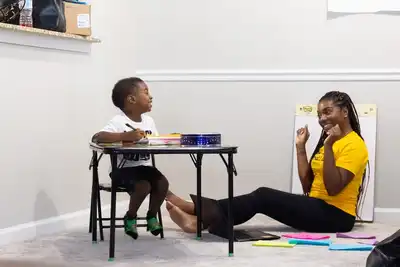Home Schooling in South Africa – Everything You Need to Know

Image Source: Unsplash
Homeschooling is a rapidly growing educational alternative for parents who want to take a more active role in their children’s education. Many well-known celebrities, such as LeBron James, Angelina Jolie, and Tiger Woods, have homeschooled their children. This article explores the history of homeschooling in South Africa and discusses the legal requirements if you intend to homeschool your child.
What is Homeschooling?
Homeschooling is a form of parental education in which parents teach their children at home instead of sending them to school. It is a form of alternative education legally recognized in many countries. Homeschooling is done by parents or guardians responsible for their children’s education by providing a learning environment at home or in another location.
Why Choose Home Schooling in South Africa?
– You can tailor your child’s learning experience to suit their individual needs and interests.
– Your child won’t fall behind their peers when you temporarily relocate or are dealing with a family crisis.
– You can create a positive, safe learning environment free of bullying, drugs, and other hazards found at some schools.
– You can spend more time with your child and make learning more enjoyable.
– You can save money by not paying for school transportation, lunches, and uniforms.
– Curriculum and materials are easy to find and can be purchased online or at your local bookstore.
– You can legally homeschool your child in every country in the world.
– There is no limit on the number of children you can homeschool.
– You can integrate or supplement your child’s education with activities like sports, tutoring, and art lessons.
– You can legally homeschool your child even if you are a single parent or don’t have a college degree.
Homeschooling requirements in South Africa
South Africa does not have a specific law governing homeschooling. As such, homeschooling is a legal alternative to compulsory schooling, but you are responsible for following the rule that ensures the child’s welfare. If you intend to homeschool your child, you must follow the same child welfare laws that apply to parents who are educating their children at home. These laws protect children’s rights by regulating issues such as child abuse, neglect, and welfare. Each province has its child welfare laws that apply to homeschooling parents. For example, in Gauteng, parents must follow the Child Care Act of 2004, while in Western Cape, the Child Welfare Act of 2005 applies.
Homeschooling in South Africa: The legal way
If you want to homeschool your child in South Africa legally, you must follow these general guidelines:
– You must be the child’s parent or legal guardian.
– You must have a valid South African ID or passport.
– You must provide the home address where you will homeschool your child.
– You must provide the contact information of your child’s doctor and a person who will serve as a “contact person” in an emergency.
– You must provide the contact information of another parent who lives in the same household as you and legally homeschools one or more children.
– You must submit a detailed, written homeschooling plan, which includes your child’s curriculum, learning objectives, and dates for assessment.
– You must submit a written assessment of your child’s progress at least twice a year.
Homeschooling in South Africa: The illegal way
If you choose to homeschool your child without complying with the above-listed requirements, you will engage in “illegal homeschooling.” Historically, the homeschooling movement began in the 1970s, when parents sought to avoid mandatory government schooling that made their children sit through long lectures and take endless standardized tests. Many parents homeschooled their children out of religious conviction, such as Seventh Day Adventists or Christian Scientists, who believe that formal schooling is contrary to the will of God. Other parents homeschooled because they were dissatisfied with public schools or had specific learning disabilities. Over the years, homeschooling became increasingly popular among parents unhappy with government schooling, but in South Africa, it is still not widely practiced. According to a survey conducted by the Department of Basic Education, only 0.4% of students in Grade 12 were taught at home in 2017. Still, many parents choose to illegally homeschool their child because they don’t know their legal obligations and the process for obtaining official approval.
Final words
Homeschooling is a growing educational alternative for parents who want a more active role in their children’s education. Many well-known celebrities, such as LeBron James, Angelina Jolie, and Tiger Woods, have homeschooled their children. This article explores the history of homeschooling in South Africa and discusses the legal requirements if you intend to homeschool your child.





